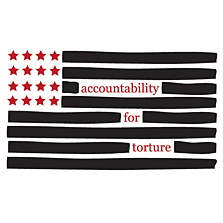
There's good news in the ACLU's Freedom of Information Act lawsuit seeking greater transparency about the CIA's now-discontinued torture program: The CIA has agreed to review and consider for public release two of the three key reports we seek. The release would take place on May 22.
But as usual when we talk about forcing transparency from the CIA, good news comes with caveats. The two reports the CIA is considering making public give only its version of the story (though apparently the two CIA reports contradict each other). The agency is still fighting in court to prevent disclosure of the third, an investigative report into CIA torture by the Senate Select Committee on Intelligence. We're looking forward to making our case for disclosure of that report to the court. Meanwhile, the committee — which invested four years into its comprehensive investigation led by Senator Diane Feinstein (D-Calif.) — will vote soon to seek declassification of a summary of the report. We urge it to vote "yes" so that the public has a fuller story, and not just the one the CIA wants to tell.
Some background: We filed our FOIA lawsuit against the CIA in November last year, seeking two documents necessary for a more complete public accounting of the human and national security costs and consequences of CIA torture. The first is the Intelligence Committee's 6,000-page investigative report. According to the committee's chair, Senator Feinstein, the report "uncovers startling details about the CIA detention and interrogation program and raises critical questions about intelligence operations and oversight." Senator Ron Wyden (D-Ore.) says the report reveals that "the CIA repeatedly provided inaccurate information about its interrogation program to the White House, the Justice Department, and Congress." In other words, the CIA apparently lied to the agencies responsible for oversight of its activities. Our lawsuit also seeks the CIA's report in response to the committee, in which the agency defends its torture regime and challenges the committee's investigative methods and findings.
In December, Senator Mark Udall (D-Colo.) revealed that former CIA Director Leon Panetta had commissioned a separate report about the torture program — and that this Panetta report "amazingly" contradicted the findings of the CIA's official response to the committee. We amended our lawsuit to force disclosure of the Panetta report as well.
The CIA has agreed to consider releasing to us on May 22 both the Panetta report and its response to the Intelligence Committee's report. But here's another caveat: We still don't know how much in those reports the agency will seek to keep secret. The CIA has an unfortunate history of censoring or information that presents the agency in a bad light, while giving the green light to self-serving disclosures from torture perpetrators and apologists. (John Rizzo, the CIA's general counsel during some of its most lawless years, is currently on a tour to promote a book aptly titled "Company Man.")
Regarding the Intelligence Committee report, we expect the CIA will argue in court that the document is not the agency's record for purposes of the FOIA and the CIA is not obligated to release it. That's similar to the argument the Department of Justice made in a lawsuit filed by journalist Jason Leopold, seeking the executive summary of the Intelligence Committee report. (Leopold describes the government's arguments in his case .) We'll challenge any CIA arguments in court, of course, but there's another way to preventmisleading, one-sided disclosures by the agency. The Intelligence Committee will vote soon on whether to declassify its investigative report and press for expeditious declassification so that the CIA doesn't drag its feet. Senator Feinstein said last year that she will seek a declassification vote, and that vote could take place in the coming weeks. In the meantime, the calls for disclosure are growing. They've come from , a former ambassador to NATO, and the editorial boards of the and the , among others.
Although none of us can know exactly what's in the three reports we're seeking, we do know that all three must be disclosed, both for a more complete public record, and to correct that record. We need them to pierce through the apparent web of lies and defenses the CIA has spun for years about its torture program to Congress, the executive branch — and the American people.
Learn more about torture and other civil liberty issues: Sign up for breaking news alerts, , and .

